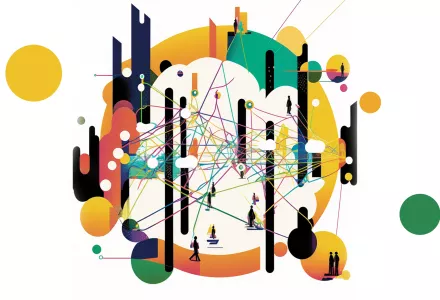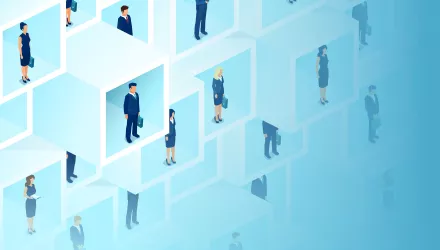
Executive Summary
Trust in democratic institutions has waned in recent years, stemming from insufficient transparency and representation in public decision-making processes, expanding social and wealth disparities, and growing apprehensions surrounding mis/disinformation fueled by the emergence of highly persuasive AI-generated content such as ChatGPT. Decentralized Web3 technologies such as blockchain emerged as instruments for creating an alternative “trustless” system that uses cryptography and decentralized consensus mechanisms to obviate the need for third party human intermediaries, but suffered significant setbacks due to massive frauds and speculations throughout the past decade of their evolution. Although it might appear counterintuitive to advocate for the potential benefits of these technologies in light of their evident failures, we assert that, before dismissing them, it is essential to differentiate the technological layer from the social layer in these instances and examine them with greater care and criticality. We argue that the recurrent failures of blockchain-based projects, as reported in the media and denounced by critics, are less indicative of the technology’s inherent weakness, and more a consequence of malicious actors exploiting the social layer within the system.
What is thus heavily lacking in the current Web3 landscape is the collaborative development and innovation in the social and institutional layer to build systems that genuinely enhance democracy and address the trust crisis society faces as a whole in a more sustainable way through leveraging the capabilities offered by decentralized technologies. As such, rather than perceiving these technologies as decentralized trust-replacing technologies, we consider them as “Decentralized Trust-Building Technologies” (DTTs). DTTs do not seek to replace trust, but instead serve to fortify trust through transparent and secure mechanisms combined with robust institutional designs.
In this report, we investigate a variety of case studies that showcase emerging efforts
to employ DTTs in the physical realities and the built environment of our social institutions. These empirical examples offer valuable insights – both inspirational and cautionary lessons – into the practical applications of DTTs in transforming our society and lived environments. From this empirical analysis, our goal is to establish a set of guidelines and best practices for current and future endeavors in fostering innovation within this space, ultimately paving ways for more resilient and sustainable lived ecosystems that harness the power of DTTs.
Key Takeaways
-
Decentralized Trust-Building Technologies (DTTs) offer a technical infrastructure to provide a tamper-proof source of truth, but this does not automatically lead to trust.
-
DTTs hold the potential to innovate across a range of social institutions, including identification, voting and governance, titling and rights management, collective ownership, financial transactions, record keeping, civic participation, and regenerative economies.
-
DTTs can help enable wider participation and coordination at scale, but they should balance between undifferentiated mass involvement and particularized local control.
-
DTT applications can be driven by institutions, grassroots initiatives, or collaborations among stakeholders to achieve different goals.
-
DTTs hold the potential to help foster a shift from extractive to regenerative economies, ultimately providing sustainable economic benefits to local communities.
-
To enhance the trustworthiness of both technology and institutions, it is crucial to build systems not just for the community, but collaboratively with the community in participatory design processes.
-
Policymakers need to better understand both risks and benefits of DTTs to effectively integrate them into our existing systems.
Download the Full Report
Rong , Helena. “When URL Meets IRL in Web3: Lessons for Decentralized Trust-Building Technologies in Democratic Governance.” May 3, 2023





